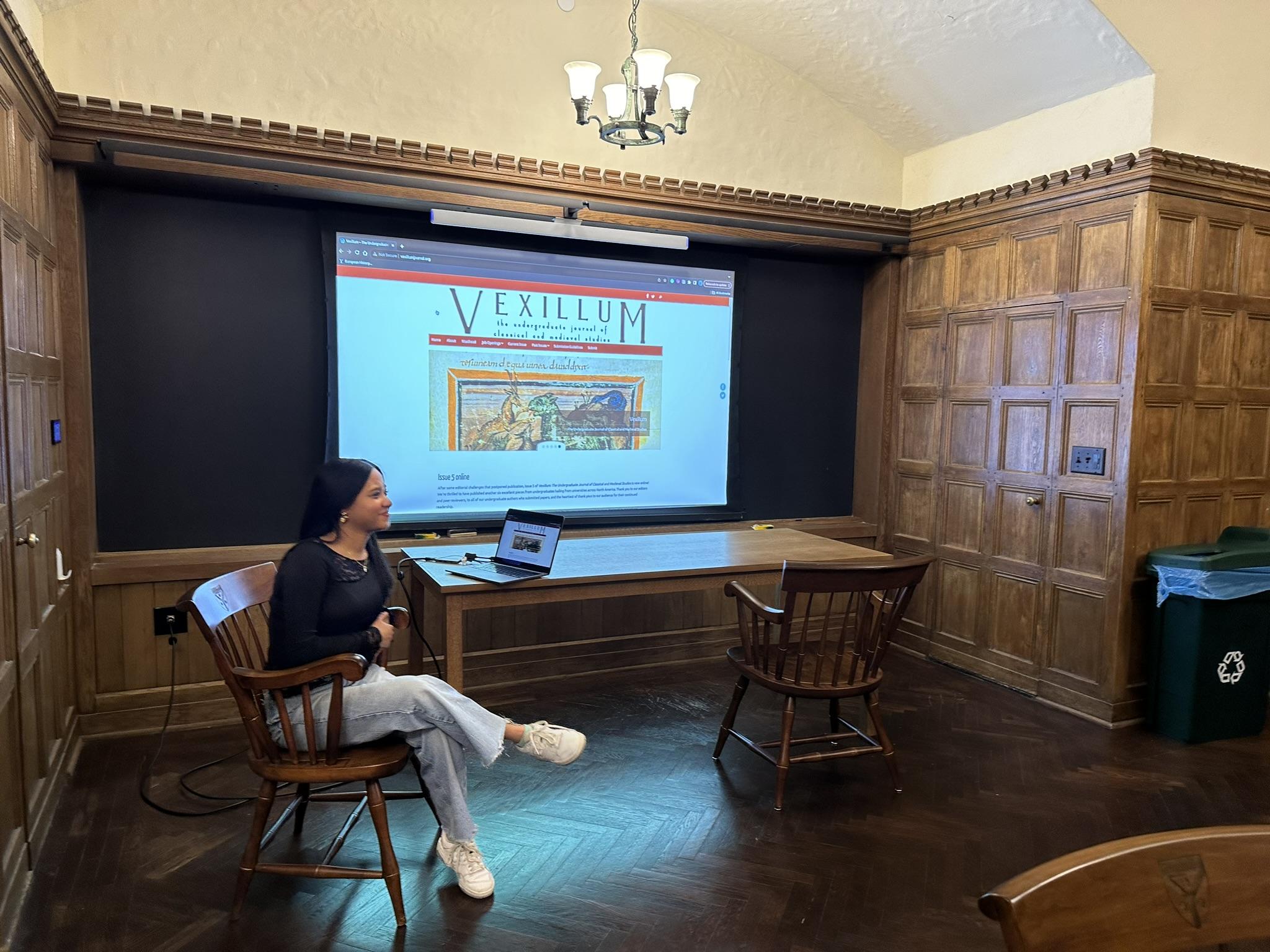Undergraduate medieval studies journal Vexillum returns to Yale
The revamped journal will provide opportunities for undergraduates to engage with Medieval Studies.

Nora Ransibrahmanakul, Contributing Photographer
On Tuesday evening, students and faculty met in the Humanities Quadrangle to celebrate the revival of the Medieval Studies Journal Vexillum.
The journal was initially started in 2010 to share undergraduate scholarship in the fields of Medieval and Classical Studies. The first issue was released in 2011 and featured 10 essays. In its prologue, the publication is described as focusing on topics such as “imagery in the early Italian Renaissance,” the “divine economy” of Plato’s Euthyphro, a comparison of the Mongol and Roman imperial guards and Christ’s image in Byzantine churches. The journal released five issues, culminating in 2016 with six essays in the final issue.
“Undergraduate journals help demystify the world of academic publishing and uplift the scholarship and the very real contributions that undergraduates make,” said Religious Studies professor Maria E. Doerfler.
Yale began offering a Medieval Studies Certificate to undergraduate students in winter 2022. The program has since seen increased interest from students, to the point where there are more undergraduate students than graduate students in the Medieval Studies program.
Isaidy Medina ’25, who is currently pursuing a Medieval Studies certificate, was searching for ways to engage with the material beyond the classroom and stumbled upon the old website for Vexillum last spring. She brought up the topic to Professor Doerfler, who was then the interim chair of Medieval Studies — a role in which she also functions as the director of graduate studies and the director of undergraduate studies for the department. They went to work tracking down previous students and faculty involved in Vexillum.
Medina emphasized that paper submission is not the only way that the group hopes to engage with students. She is hoping to recruit and train students to review submissions and choose papers for publication. She noted that Vexillum’s revival also depended on contributions from students experienced in advertising, website management and design.
Attendees of Tuesday’s event included several graduate students in Medieval Studies and related fields who were interested in assisting with the revival of the journal.
Second-year Ph.D. student Angus Warren attended the meeting and expressed his support for the endeavor.
“In undergrad publishing, I’ve seen the travails. I’ve seen how hard it can be and I would love to see Yale’s medieval journal flourish,” Warren said.
Discussions during the event on Tuesday included introductions among the new group of interested individuals, a review of Vexillum’s previous achievements and conversations about how the revived publication would be adapted to modern technology and developments in Medieval Studies scholarship.
“There were other people who existed and did really interesting things rather than just the Franks or the Germans, et cetera, et cetera. So this has also allowed for bringing medieval studies in conversation with a lot of other fields,” said Professor Doerfler. She explained that the publication is currently navigating how to establish its own niche while engaging in cross-disciplinary work.
Doerfler explained that undergraduate journals such as Vexillum occupy a niche in academia that is different from the “traditional” journals that publish the work of established academics. They allow for students to try their hand at preparing work for publication, from engaging with higher-level ideas and questions in the field to participating in a peer review process.
Focusing on undergraduate scholarship allows for a lower barrier of entry for engagement, meaning that students have an avenue to explore an interest in Medieval Studies even if they have not previously done work in the field. These publications also allow for connections between universities and broader audiences to be made.
Professor Emily Thornbury is the current Medieval Studies program chair and undergraduate certificate director. She will be serving in an advisory capacity for Vexillum.
“Classical and Medieval worlds are living things for many people, and are aesthetically and politically productive for them,” Thornbury said. “Vexillum will offer one route for students to present their discoveries to a wider community.”
Vexillum has a target publication date of spring 2024.







